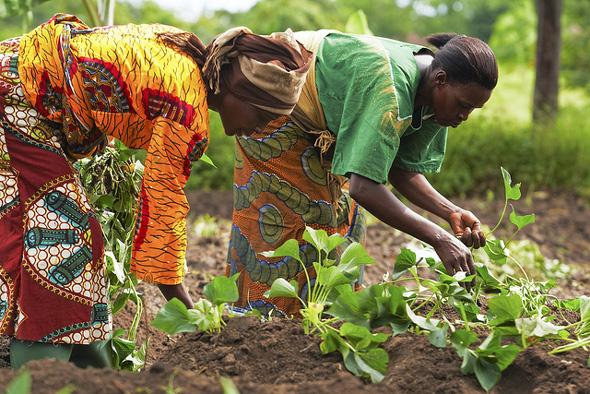Radio is the principal medium for receiving climate information by most farmers with social media being the least, a Kwame Nkrumah University of Science and Technology research has found.
This finding by the Environmental Science department of the University was made known at a climate information services workshop in Kumasi.
It said 74.6 per cent of farmers rely on radio and 2.1 per cent on social media for climate information.
According to the intergovernmental panel on climate change 2018 report, climate change could cause extreme levels of poverty especially in sub-Saharan Africa.
Ghana, however, is most vulnerable to the negative effects of climate change. This is because the livelihood of the majority is dependent on rain-fed agriculture.
The study, conducted in the Upper East region, sought to assess mainstreaming information services for resilient agricultural systems in Ghana.
“Small holder farmers in the Upper East region use climate information for important decisions like crop variety selection, changing crop patterns and harvesting time,” lead researcher, Prof. Philip Antwi-Agyei said.
The study found 60 per cent of smallholder farmers get access to cli mate information.
91 per cent of the information received by the study was found to be on rainfall with 21 per cent of them on temperature.
Inadequate information on seasonal forecast for long-term planning, low accessibility to climate information and high illiteracy levels among farmers were key barriers to uptake of climate information in the study communities.
Lack of awareness of climate information, timeliness of climate forecast, lack of reliability of climate forecast are some of the factors
The researchers also found the information was difficult for the farmers to understand.
Interestingly, majority of the farmers were not ready to bear the cost of receiving climate information.
Researchers recommended a capacity building for agricultural extension officers.
“This is critical in planning and designing efficient training outreach programmes on climate-resilient agriculture.
“Workshop participants and survey respondents reported the need for training on effective interpretation of weather forecast to farmers and developing technical skills for effective extension delivery,” he said.
Latest Stories
-
Telecel Ghana Music Awards board makes changes to nominations after review
3 mins -
We need an independent body to investigate Tema Kplejoo shooting incident – Lanchene Toobu
5 mins -
LPG consumption tumbles by 4.47% – IES
29 mins -
Dollar rises to five-month high, puts heat on yen
30 mins -
You can’t order arrest of drivers for increasing fares – Joyce Bawah to Transport Minister
43 mins -
GWCL to publish list of defaulters as it is overwhelmed by GH¢1.2bn indebtedness
45 mins -
Tanzania, Rwanda, Zimbabwe join African recall of J&J cough syrup
52 mins -
IMF doesn’t buy from our market; their positive assessment of Ghana’s economy needless – Adongo
1 hour -
“Give us back our money” – Aggrieved customers of Gold Coast Fund give gov’t 3-month ultimatum
1 hour -
Manhunt as ‘dangerous’ suspects escape Namibia cell
1 hour -
Luis Enrique confident of PSG comeback against Barcelona
1 hour -
KNUST launches GRASAG Research Fund to support problem-solving initiatives
1 hour -
Rust armourer sentenced to 18 months for Halyna Hutchins’ death
2 hours -
You’ve no power to regulate transport fares – COPEC to Transport Ministry
2 hours -
Encourage decentralisation to accelerate development – Okyenhene
2 hours

